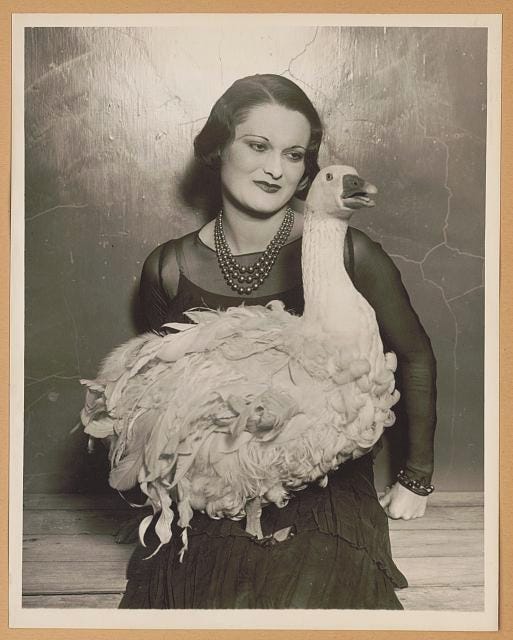I once had a writing friend give me feedback on a short story I’d written about a woman having a schizophrenic breakdown that involved intrusive thoughts and hearing voices. My friend said, “I’m so sorry you’re going through that.”
Taken aback, I said nothing. Later I took it as a win, as positive feedback, deciding it meant the story was good since my friend felt it was true of me, the writer. Maybe my friend still thinks I’m schizophrenic. I’ve never asked. Maybe I am schizophrenic.
I have a poem coming out in a literary magazine that’s about falling into a love triangle that namechecks Thomas Hardy’s characters in The Return of the Native. Have I personally enjoyedexperienced an adulterous love triangle? Yes. No. Maybe. I’ll never tell.

For me the point of writing is to tell a great story with emotional ups and downs, and maybe some truths, but not the actual truth. I’m not a memoirist. Or am I? Again, maybe.
When Liz and I were editing a literary magazine, it struck me how often the short stories in the slush pile did not have a conflict. A short story, at its core, is conflict. There must be desire that causes tension.
Writing in obscurity for twenty years has been helpful here. It gave me a lot of time to marinate on what I believe – about fiction, literature, and writing. It gave me a chance to gravitate toward writers I admire, writers who always speak their truth, come what may. They are oddballs, rebels, mysteries, entertainers, and survivors. They are storytellers. It’s none of my business who they are as actual people I might meet on the street. Obvs, plenty of people, all on the internet, disagree with me on this. If I’ve lost your respect, I’m okay with it.
I’m trying to find the readers who like great stories, unforgettable characters, bold weirdos, and morally complicated situations. I’m talking about letting readers think whatever they want about a piece of writing and about me, the person who wrote a thing that provokes unease or outright disgust and rejection.
Here’s a lesson I’ve learned. Don’t try to be “good.” Nothing puts a reader to sleep faster.
I don’t want to come across as a badass (ugh! there I go again trying to tell you what to think of me). Really, I’m just a tenderhearted, messed up, vulnerable human being like everyone else who struggles with internetting. Before Liz and I publish an essay, I worry about what people will think and who we’ll offend. What helps is reading the greats.
Tony Tulathimutte is a literary genius. In Rejection he writes very believably about awful characters. Do I believe Tulathimutte is a bad person? No. Does it matter? Not to me. How about Nabokov, Bret Easton Ellis, or Otessa Moshfegh? Again, no, no, and no. For me, it’s the opposite. I read their work and study it. I try to figure out how they achieve their effects, how their words make me laugh, cry, or shudder in horror.
Here’s an experiment for any writers reading this: be bad on the page. Be morally suspect. Find the drama, the controversy, the taboo thoughts and actions. These are characters after all, not you. Try it and see what happens. I won’t think you’re a bad person. Other people certainly will. Maybe it’s time to practice being okay with that.
If it goes well, one of your closest friends will take your hand and say with tender concern, “You never told me you were a schizophrenic adulterer.” Bravo!
If all this makes you squeamish, write about that. Write about what you could lose: the respect of everyone at church, the fantasy that you are a morally superior person, the conviction that you always do the right thing and never lie, cheat, or steal. In real life, maybe you don’t. But words on a page aren’t real life. They should just feel like it.
After he published his first novel, Maggie: A Girl of the Streets, Stephen Crane was mocked by reviewers. After The Red Badge of Courage came out and was well received, Crane wrote to a friend: “When I was the mark for every humorist in the country, I went ahead. Now when I am the mark for only 50% of the humorists in the country, I go ahead.”
Which brings me to nuns. I’ve been thinking a lot about them lately in all their wild multitudinousness.
Writers are a kind of nun. We must give up things – looking good, nice, and smart – to follow our calling because we are devoted fanatics who write, mostly, in complete obscurity. When we have a hit and actually find readers, some of them are going to misunderstand, laugh at, and scorn our holy visions. And they may not like us as people, not just writers. We must go ahead, like Crane. Letting people hate us is part of our vow.
So what do you think? Share your comments below, internet people. Be honest. I can take it . . . I hope.



"I’m so sorry you’re going through that" - lol.
Also, nice bird. I'm not saying it is or isn't, but it kind of looks fake to me.
And bravery. Like James Baldwin’s x-ray vision of truth telling in both his fiction and nonfiction, which has remained vital to this very day; the poetry of Gregory Orr, which served as a healing agent for his tragic childhood; and Fernando Pessoa, for charting and giving voice to all the selves inside him. Just a few examples. NBAs and Pulitzers? Maybe the literary world should give out Purple Hearts instead.